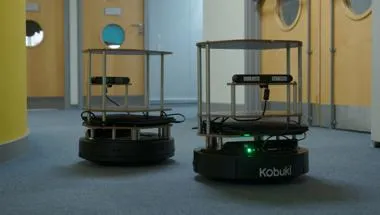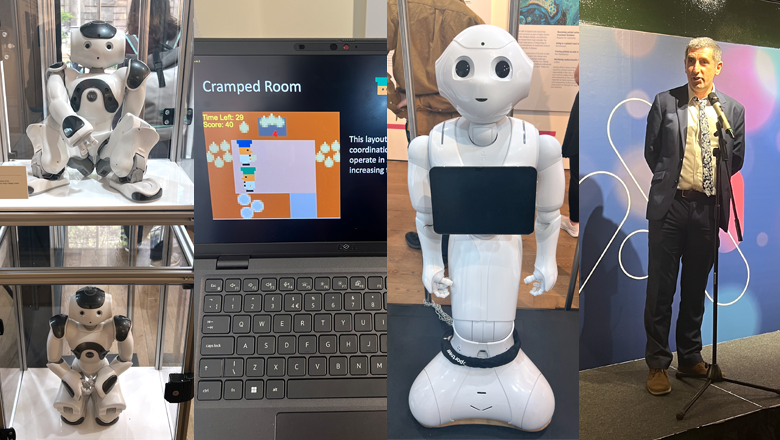
Dr Yali Du
Head of the Distributed AI Research Group
- Senior Lecturer in Artificial Intelligence
Research interests
- Computer science
Contact details
Biography
Dr Yali Du is a Senior Lecturer in Artificial Intelligence in the Department of Informatics at King’s College London. She leads the Cooperative AI Lab. Her research aims to enable machines to exhibit cooperative and responsible behaviour in intelligent decision making tasks. Her work focuses on reinforcement learning and multi-agent cooperation, with topics such as generalization, zero-shot coordination, evaluation of human and AI players, and social agency (e.g. human-involved learning, safety and ethics). She was chosen for the AAAI New Faculty Highlights award (2023), Rising Star in AI 2023. She has given tutorials on cooperative multi-agent learning at ACML 2022 and AAAI 2023. She serves as the editor for the Journal of AAMAS and IEEE Transactions on AI, and is part of the organising committee for AAMAS 2023. Her research is also supported by the Engineering and Physical Sciences Research Council (UKRI-EPSRC).
Research interests
- Multi-Agent Cooperation and Coordination
- Reinforcement Learning and Generalisation
- Evaluation of Human and AI players
- Social Aspects of Learning Agents (e.g. explainability, human-in-the-loop learning, ethics)
- Applications in Game AI, Data Science, etc
More information
Research

Trusted Autonomous Systems Hub
The Trusted Autonomous Systems Hub develops the trustable autonomous systems of tomorrow.

Finance Hub
The Finance Hub conducts fundamental and applied research at the intersection of finance and computation, a sector which is colloquially known as FinTech.

Sustainability Hub
The Sustainability Hub consolidates the research related to sustainability

Distributed Artificial Intelligence
Understanding AI in social and economic contexts where an intelligent entity may be interacting with other entities

Centre for Data Futures
Bringing together interdisciplinary experts to focus on participatory infrastructure throughout the life of data-reliant tools.
News
King's scientists receive government funding to enable smooth transition to an AI-powered future
Up to £400,000 from the AI Security Institute will fund research exploring how humans and AI can work together sustainably and safely.

King's AI researchers appointed as Turing Fellows to tackle societal challenges
Three King's academics from the Department of Informatics have been named as Turing Fellows for 2024-25

King's scientists explore the effects of AI on human life
Bringing the Human to the Artificial presents cutting-edge AI research at King’s.

Learning with Humans to Play Games
Read about King's work on training AI agent through human interaction, as featured in the Bringing the Human to the Artificial exhibition.

Research

Trusted Autonomous Systems Hub
The Trusted Autonomous Systems Hub develops the trustable autonomous systems of tomorrow.

Finance Hub
The Finance Hub conducts fundamental and applied research at the intersection of finance and computation, a sector which is colloquially known as FinTech.

Sustainability Hub
The Sustainability Hub consolidates the research related to sustainability

Distributed Artificial Intelligence
Understanding AI in social and economic contexts where an intelligent entity may be interacting with other entities

Centre for Data Futures
Bringing together interdisciplinary experts to focus on participatory infrastructure throughout the life of data-reliant tools.
News
King's scientists receive government funding to enable smooth transition to an AI-powered future
Up to £400,000 from the AI Security Institute will fund research exploring how humans and AI can work together sustainably and safely.

King's AI researchers appointed as Turing Fellows to tackle societal challenges
Three King's academics from the Department of Informatics have been named as Turing Fellows for 2024-25

King's scientists explore the effects of AI on human life
Bringing the Human to the Artificial presents cutting-edge AI research at King’s.

Learning with Humans to Play Games
Read about King's work on training AI agent through human interaction, as featured in the Bringing the Human to the Artificial exhibition.


